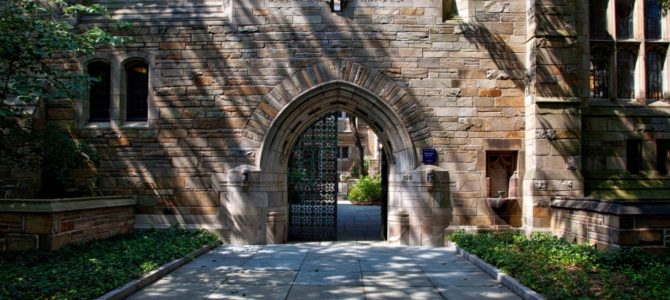
Late this January, the University of Pennsylvania’s president, Amy Gutman, got a second letter from Congress about China’s million-dollar donations there. The campus is home to the Biden Center for Diplomacy and Global Engagement, or “the Biden Center.” It was launched in 2017, after which Chinese gifts more than tripled — from $21 million over 36 months before 2017 to more than $72 million during a similar time-frame after.
Signed by Jim Jordan, James Comer, and Virginia Foxx of the House Judiciary, Oversight and Education committees, the letter explained:
In light of your university’s close relationship with the Biden family, and recent revelations regarding their potentially illicit ties to foreign adversaries including China, we request an immediate response to this inquiry.
The letter requests all records and information regarding the school’s China contacts, including those in the custody of President Biden and of Anthony Blinken, his secretary of state and former managing director of the center.
The correspondence comes none too soon and, in another era, would have shocked and infuriated a majority of citizens. Today, few Americans realize how much their institutions of higher education depend on Chinese funds, creating the appearance of a China-higher ed alliance. This is not only unfair to American citizens, who subsidize higher education as a public good with its nonprofit status and receipt of federal and state appropriations, but also because of the obvious risks to national security.
As the letter makes clear, former Chinese Communist Party officials such as Liu Yunshan admit that CCP infiltration of American education is part of a propaganda effort to increase CCP influence here, even as our State Department accuses it of genocide against the minority Uighur population and our Justice Department is arresting its spies.
According to government documents, universities and academic talent initiatives such as the Thousand Talents Plan are vehicles “to attract, recruit and cultivate high-level scientific talent” to further China’s development. They “lure Chinese overseas talent and foreign experts to bring their knowledge and experience to China and reward individuals for stealing proprietary information” for the Chinese Communist Party.
What’s more, thanks to the lockdowns, these trends may get worse before they get better. For decades, colleges and universities have relied on tuition dollars, approximately 30 percent of their total income, to pay their bills — until COVID-19 lockdowns changed all that. As schools move to online learning, more students are opting out — either by deferring enrollment or suspending their studies or even by skipping college altogether.
So, how will institutions replace this tuition revenue that pays for so many buildings and so many salaries? One obvious go-to is China. The CCP already has a welcome presence on hundreds of campuses in the form of their million-dollar Confucius Institutes, marketed as cultural and exchange centers but really a form of soft-power to access American research and technology.
A growing number of Chinese students who pay full, out-of-state, and undiscounted tuition is also an attractive and alternative revenue source. This too has risks, however. Last year, the Justice Department’s China Initiative found a vast network of undercover Chinese military officers posing as students at Boston University and the University of California, Davis.
Faculty and researchers are also targeted and recruited, the most well-known being Harvard Chemistry Chairman Charles Lieber, indicted last year for failing to disclose his contract as a “strategic scientist” with Wuhan University of Technology. It paid him $50,000 a month, plus living and travel expenses, to cultivate young talent and publish in WUT’s name.
Cases also come from Massachusetts Institute of Technology, Texas A & M, Carnegie Mellon, Ohio University, and other schools. The arrest of MIT professor Hang Chen revealed an arrangement similar to Lieber’s, indicating a pattern of influence, technology transfers, and espionage. According to Justice Department documents, “Since 2013, Chen allegedly received approximately $29 million of foreign funding, including $19 million from PRC’s Southern University of Science and Technology.” Chen, too, had not disclosed these affiliations.
This secrecy appears to be the norm for institutions as much as for individuals: Just last year, President Trump’s Education Department documented more than $6 billion of undisclosed foreign funds headed to American colleges and universities, even though federal law — Section 117 of the Higher Education Act — requires such disclosures when a gift exceeds $250,000.
Not incidentally, the main lobby group representing higher education is the American Council on Education (ACE), an organization that has furiously fought transparency requirements such as Section 117. Given its heft in D.C. as the representative of hundreds of schools and its likely alliance with many who might serve in a Biden administration, it may succeed not only in keeping these foreign funds hidden but also in growing them to fill the void left by COVID-19.
More sober still is the realization that China as the buyer of American “higher education for sale,” while both wrongful and dangerous, makes sense. After all, many left-wing academics sympathize with communist societies and their academic monoculture already tends in a China-like authoritarian direction with its curbs on free speech, its violations of religious exercise for Christian student groups, and its suppression of the free flow of information.
This all makes the University of Pennsylvania letter a welcome inquiry into a shady area of American higher education finance and Congress members Jordan, Comer, and Foxx should be commended for it, just as Biden & Co. should be scrutinized and shamed. The China-higher ed alliance may seem a match made in heaven for cash-strapped academia, but it’s a bad development for America.









